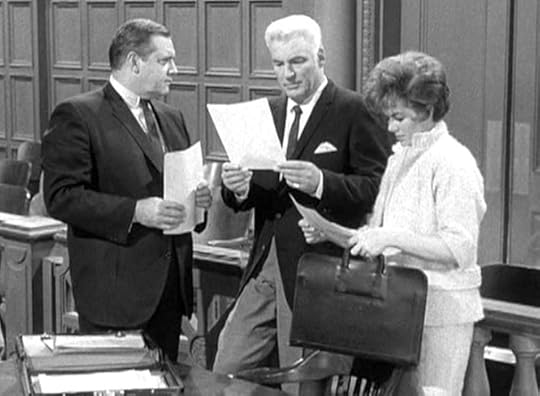World without end

 By the time you read this, the final episode of one of television's most acclaimed recent series will have aired. Succession, the comedy-drama about one of the most, if not the most, disgusting, reprehensible, repugnant, and despicable families since the Manson clan, came to the conclusion of its four-season run on Sunday night, and it seemed as if, over the last week, you couldn't avoid online speculation about it no matter where you looked. I've never seen an episode of Succession, since we don't subscribe to HBO, but I've read enough about it to know that it's not my kind of television. I had to work for too many people like them while I was working; now that I'm retired, why would I want to spend any more time around them?
By the time you read this, the final episode of one of television's most acclaimed recent series will have aired. Succession, the comedy-drama about one of the most, if not the most, disgusting, reprehensible, repugnant, and despicable families since the Manson clan, came to the conclusion of its four-season run on Sunday night, and it seemed as if, over the last week, you couldn't avoid online speculation about it no matter where you looked. I've never seen an episode of Succession, since we don't subscribe to HBO, but I've read enough about it to know that it's not my kind of television. I had to work for too many people like them while I was working; now that I'm retired, why would I want to spend any more time around them? At any rate, this isn't about Succession, although it does provide a nice lead-in to what this is about. In Brian Phillips's Ringer article " In Praise of the TV Shows That Just Won't End ," Phillips meditates on the nature of a series finale—why they invariably cause so much anxiety for true fans of the series—and then returns to the idea of shows that "never really end." In this case he's referring to shows that somehow seem to continue in the television universe, whether through spinoff series, reunions, or movies. Take Star Trek, for example; the existence of Star Trek movies has removed the pressure to nail the series finale; "You’re always encouraged to imagine that more will be coming, whether or not it actually arrives. And that little hedge against finality, that slight ducking of last-act obligation, frees you to keep your imagination in the ongoing present where the rest of the show has taken place."
That's pretty good, and it reminded me of a series that had a final epsiode of sorts, even though it didn't really need one: Perry Mason. By happenstance, last week I saw the final episode of the show's nine-seasons run, "The Case of the Final Fade-Out." It's a whimsical episode, set in the world of series television, the story of an egomanical TV star who's murdered while filming a scene of his popular television show. Mason and Paul Drake interview the show's crew to find out what they know; most of the crew members are played by actual members of the Mason crew. The judge is played by Mason creator Erle Stanley Gardner in an unbilled cameo. The killer turns out to be none other than (spoiler alert) eternal teenager Dick Clark! The story itself, as is the case throughout most of Mason's final season, is no great shakes, but it's an appropriate series finale in that it gives everyone a chance to take a final bow, turning the episode into a kind of wrap party.
The point of all this, though, comes in the very last scene. Having won yet another case (and once again humiliating Hamilton Burger in the process), Perry, Paul, and Della discuss an upcoming case. When Paul and Della ask where they should start, Perry replies, "It seems to me that the place to start is at the beginning." Fade out, end of series.
It's a simple, but stunningly effective ending. It's symbolic in that it sends a message that the work of the lawyer in pursuit of justice will never end; in the world of the series, it also suggests that while the series has come to a conclusion, Perry's work (and Paul's and Della's) will keep going on—we just won't see it every week. Their universe will continue to exist, so if you ever thought to yourself that Perry Mason is the man who you'd go to if you found yourself in trouble, you won't have to worry about convincing him to come out of retirement or anything like that—they'll still be there. In that sense, it is a series that, in Phillips's words, never really ends; it can continue for as long as you want it to. (Gardner himself wrote six more Mason mysteries after the show left the air.)
Of course, Raymond Burr and Barbara Hale did return as Perry and Della in a series of movies, although they're pale imitations of the show (and many Mason fans don't consider them to be canonical). But putting that aside, the show's perfect ending left you with an even more perfect message: Perry and the gang aren't going anywhere, so there's really no need to say farewell, when au revoir will do. And isn't that the way it's supposed to be with friends? TV
Published on May 31, 2023 05:00
No comments have been added yet.
It's About TV!
Insightful commentary on how classic TV shows mirrored and influenced American society, tracing the impact of iconic series on national identity, cultural change, and the challenges we face today.
- Mitchell Hadley's profile
- 5 followers



